Worst to Best: Neon's 2022 Slate
The "Neon Box" has become the most anticipated shipment during screener season. How does this year's model stack up?
Late last year, I burned through (most) of A24’s slate for 2022 as a way of playing catch-up for listing season and paying homage to a distributor with a rare curatorial identity. Though listing season is over for all but Reveal subscribers, I wanted to do the same for the Neon box that members of critics groups get every year—perhaps the most anticipated of all the packages to land on our doorsteps. The 2021 edition set a standard that no reasonable person could expect any future shippings to match. Among the titles: Gunda, Pig, Titane, The Worst Person in the World, Spencer, Petite Maman, and Memoria. (Also the reissue of Bong Joon-ho’s Memories of Murder, which is as good as any of them.) The 2022 box only included one film that made my Top 15 list, but it’s nonetheless a formidable collection of movies, all of which opened to some measure of critical acclaim and a four of which (Triangle of Sadness, Moonage Daydream, Saint Omer, and All the Beauty and the Bloodshed) are headed to Criterion. Let’s dig in, shall we?
IFFY
12. Beba (dir. Rebeca Huntt)
“Beba” is a nickname given to Rebeca Huntt, an Afro-Latina filmmaker from New York who uses her loose-limbed debut film as diaristic self-portraiture, exploring her roots as the child of a Black Dominican father and Venezuelan mother and the various issues of identity and historical trauma that her upbringing has evoked. Yet Beba feels like an A+ student film at best, as Huntt jams up personal and archival footage with passages from James Baldwin, pained reminiscences about her time among glamorous white kids at Bard College, and frisky confrontations with friends and family members. Her contentious relationship with her mother puts her in a worse light than she seems to believe: In one scene, she attacks her mom’s “micro-aggressions” while the poor woman is trying to catch a nice breeze in the park.
Where to watch: Hulu; the usual rental services.
SOLID
11. Fire of Love (dir. Sara Dosa)
Perhaps the most talked-about documentary out of Sundance, Fire of Love is about Katia and Maurice Krafft, two French volcanologists whose passion for each other was entangled with their passion for studying active volcanoes. The metaphor is irresistible, expressed right there in the title. We may not see much of the Kraffts’ life behind closed doors, but the hours of extraordinary footage they captured on film suggests a level of intimacy with volcanoes that the French would call l’amour fou. There’s no resisting sequences like the Kraffts exploring the alien landscapes of a volcano to the music of Air, and their underlying wish to inform public officials in order to save lives gives purpose to their derring-do. But the science of Fire of Love feels a little impoverished, and certain touches, like Miranda July’s narration, are too cute by half.
Where to watch: Hulu and Disney+.
10. Broker (dir. Hirokazu Kore-eda)
For over two decades, Kore-eda has been turning out reliably thoughtful and heartfelt dramas about families, particularly those that are broken apart and reconstituted. Kore-eda considers Broker to be a companion piece to his previous film, the Palme D’Or-winning Shoplifters, because both films are about social outcasts who come together to form an unconventional family. The starting point for Broker is intriguingly messy, because the characters we come to love are running a criminal scheme: Two men (Song Kang-ho and Gang Dong-won) steal babies from a local “baby box” where mothers can drop off their unwanted offspring anonymously and sell them to affluent couples on the adoption black market. When one of the mothers comes back for her kid, she winds up joining them on a road trip to find the right parents. In Kore-eda’s hands, the entire premise is less shocking than it sounds, especially once pieces of all three characters’ pasts are doled out. Though warm and funny, particularly in the first half, Broker turns too sentimental as it softens the edges on this story—which, we forget, is about human trafficking!
Where to watch: In theaters.
9. Saint Omer (dir. Alice Diop)
There are many respected critics who consider Saint Omer to be one of the best films of 2022—the formidable roster at Reverse Shot put it right at the top, in fact—but I’m not convinced the conceit works as a fiction film, despite the striking performances and powerful ideas at play. A documentary filmmaker making her feature debut, Diop attended the 2016 trial of a Senegalese woman who confessed to killing her 15-month-old child by leaving her on a beach and letting the tide sweep her away. For Saint Omer, Diop’s perspective is represented by a professor (Kayije Kagame) from Paris who’s looking to fold this shocking event into a book about the Medea myth, but she’s startled to find herself connecting to the accused (Guslagie Malanga), whose testimony reveals a profound sense of isolation from French society. Diop’s unusual approach to the courtroom drama is to give the proceedings the fullest possible airing, which leads to revelatory moments on the stand, along with fascinating questions from the judge and the lawyers. But Diop’s on-screen surrogate adds little but a cue for how the audience is supposed to be feeling, and it doesn’t help to have that reinforced by the defense attorney delivering a concluding statement directly to the camera.
Where to watch: In theaters.
8. Ted K (dir. Tony Stone)
Several years ago, Stone directed the exceptional documentary Peter and the Farm, about an irascible farmer in rural Vermont who’s trying to maintain his 187-acre plot alone, but fights against changes in the marketplace, along with a faltering body and a host of personal demons. From the seeds of that film, Stone has sowed a Ted Kaczynski portrait that displays a similar interest in a grizzled crank who lives in extreme isolation, though the man known as the “Unabomber” isn’t exactly treated with a sympathetic eye. Shot in the real Montana wilderness where the anti-tech Kaczynski (Sharlto Copley) mailed out explosives and wrote his infamous 35,000-word manifesto, Ted K is an exceptionally textured piece of filmmaking, geared to reflect the instability, paranoia, misogyny, and violence that defined the man’s life. (The score, by British EDM composer Blanck Mass, is superb.)
Where to watch: Hulu; the usual rental services.
7. Pleasure (dir. Ninja Thyberg)
Forget Boogie Nights. No film about the porn industry has ever been more detailed and persuasive than Pleasure, which uses the ambitions of a would-be Swedish starlet named “Bella Cherry” (Sofia Kappel) to immerse itself in a perilous business. It’s a sordid Alice in Wonderland scenario, with the naive Bella jettisoned into a surreal, pitiless world that presents her with all sorts of odd challenges and decisions. How should she use social media? How does she score the best representation— if any good representation is even possible? How far should she go? Is BDSM her thing? Are friendships with other porn stars real? It’s almost a shame Thyberg has to contrive a story around Bella’s misadventures because she invests so much in the verisimilitude of individual scenes, like one harrowing sequence where Bella tries to perform in a “rough” threesome that edges into something resembling rape with a waiver.
Where to watch: Showtime; the usual rental services.
6. Three Minutes: A Lengthening (dir. Bianca Stigter)
From my Metacritic “Best Films of the Year So Far” feature from August: As a reclamation project, Three Minutes: A Lengthening calls to mind Peter Jackson’s They Shall Not Grow Old, which unearthed and technically finessed vintage photographs, footage, and audio to give an impression of what it was like to serve in World War I. Stigter’s documentary only has three minutes of a seemingly unremarkable home movie to work with—though it has been restored and treated to make the images more vivid—but it feels similarly like an effort to use film as memorials to forgotten people. With no talking heads, only Helena Bonham Carter doing narration, Three Minutes carefully situates the footage in a specific time and place: a Jewish enclave in Poland that was about to be ravaged by the Nazis, with very few survivors. And so that footage becomes the only evidence we have of its subjects’ existence, and their mostly carefree faces—before cameras were ubiquitous, everyone loved to smile and clown around when in front of one—are set against the implied fate we know awaits them. It’s a gift to have even this small recognition of their humanity, and a testament to cinema’s power in simply documenting worlds that will change—or simply disappear.
Where to watch: Hulu; the usual rental services.
5. The Quiet Girl (dir. Colm Balréad)
A simple, gorgeous Irish drama (with subtitles!) about a withdrawn nine-year-old girl (Catherine Clinch) from a poor yet rapidly expanding family who gets sent off to live in the country with her mother’s distant relatives, a well-to-do couple (Carrie Crowley and Andrew Bennett) who have no children. The girl bonds with her attentive new foster parents—first the mother, who eagerly welcomes her the moment she pulls into the driveway; and then the father, whose affection is more reluctant but no less powerful—and the prospect of her going back home, where she’s neglected, hangs heavy over all of them. The Quiet Girl is based on a short story (“Foster” by Claire Keegan) and feels proportionately slight, yet the bond that develops between the three main characters, all of whom carry hidden and not-so-hidden pain, is rendered with sensitivity and well-earned emotion. Tear-jerker of the year, for sure.
Where to watch: In theaters.
QUITE GOOD
4. Crimes of the Future (dir. David Cronenberg)
Since a run of horror films in the early ‘80s, ending with one of his best films, 1983’s Videodrome, Cronenberg has had a hand in about half the scripts he’s directed, but only two originated with him, 1999’s eXistenZ and Crimes of the Future. It’s in these films that you can spot the difference between an artist reconciling another person’s work with his own obsessions and seeing those obsessions in their pure, unbridled form. Like eXistenZ, Crimes of the Future dabbles in biotechnology, merging the organic and the synthetic into new types of machines and new kinds of bodies. It’s also about an odd form of personal expression, focusing on an avant-garde performance artist (Viggo Mortensen) whose work involves the manifestation of new organs. Cronenberg’s sense of humor is the sugar that makes his thematic medicine go down—Kristen Stewart’s peculiar performance as an assistant for the National Organ Registry proved divisive, but I think it’s a hoot—and the film stands ready for future academic essays on art, climate change, eroticism, and the transformative power of technology and the body.
Where to watch: Hulu; the usual rental services.
3. Moonage Daydream (dir. Brett Morgen)
Morgen’s wizardry as a montage artist was first evident in the collage style of the Robert Evans documentary he made with Nanette Burstein, 2002’s The Kid Stays in the Picture, but he’s only gotten sharper since, moving on to direct the best 30 For 30 doc, the kaleidoscopic June 14, 1994, and Kurt Cobain: Montage of Heck, which made an incisive portrait of the late Nirvana frontman out of home movies and performance footage. The Cobain film raised my expectations of what his Moonage Daydream could be, but Morgen isn’t interested in the biographical details of David Bowie’s life so much as his dexterity and power as a stage performer and conceptual artist. While that means that Morgen cannot tap into the personal emotions he accessed in Montage of Heck, it does liberate him to make a wholly experiential film, which goes that much further out on a limb. Check ignition and may God’s love be with you.
Where to watch: The usual rental services.
2. Triangle of Sadness (dir. Ruben Östlund)
A certain amount of resentment has built up over Östlund winning two straight Palme D’Ors for satires on the fattest of targets—the modern art world in The Square, the ultra-rich and decadent in Triangle of Sadness—but his aim is particularly true here, supported by a several unforgettable set pieces and the rigors of a strong three-act structure and a deadpan shooting style. The lead characters are two models aboard a yacht that caters to the wealthy—a fitting position for Instagram influencers who represent glamorous lifestyles that they themselves can’t quite afford. The inevitable catastrophic storm leads to a symphony of seasickness that recalls the grossest segment of Monty Python’s The Meaning of Life but also reshuffles the deck in terms of social class and human value. “Subtle” isn’t the right word to describe the film, but funny certainly is. The fate of a couple who made their fortune in grenades is maybe the hardest I laughed in a theater all year.
Where to watch: The usual rental services.
EXCELLENT
1. All the Beauty and the Bloodshed (dir. Laura Poitras)
Astounding portrait of photographer Nan Goldin, an artist who’s like a living history of the last half-century in New York modern art and activism. It’s tempting, in fact, to talk about Goldin as a Zelig-like figure who popped up everywhere on the scene—from the ’70s gay idyll of Provincetown to ACT UP protests to a major NEA dust-up—but that would imply a passivity that she has never displayed. She is and has been wholly engaged in the triumphs and tragedies of her time, and the documentary gains a special power by including her recent (and successful) protest movement against the Sackler family, whose company Purdue Pharma, was responsible for Oxycontin and the opioid crisis that followed. The Sacklers, patrons of the arts for generations, had their names on exhibits and museum wings all over the country, but this is Goldin’s turf, too, and her audacious conceits for calling attention to the Sacklers are a form of artistry in themselves. To put it succinctly: Nan Goldin is an important American and Poitras has made a film worthy of her.
Where to watch: In theaters.






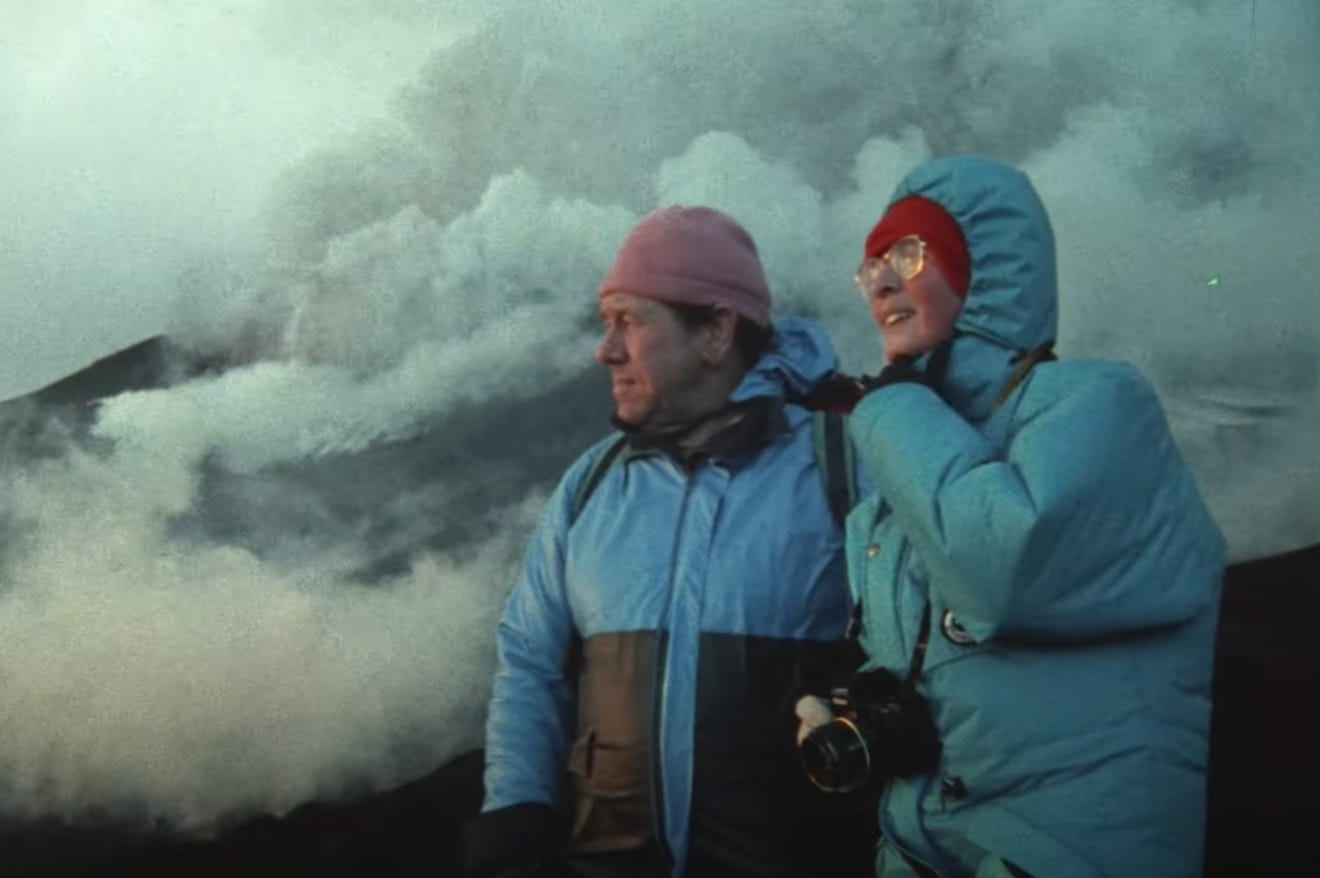


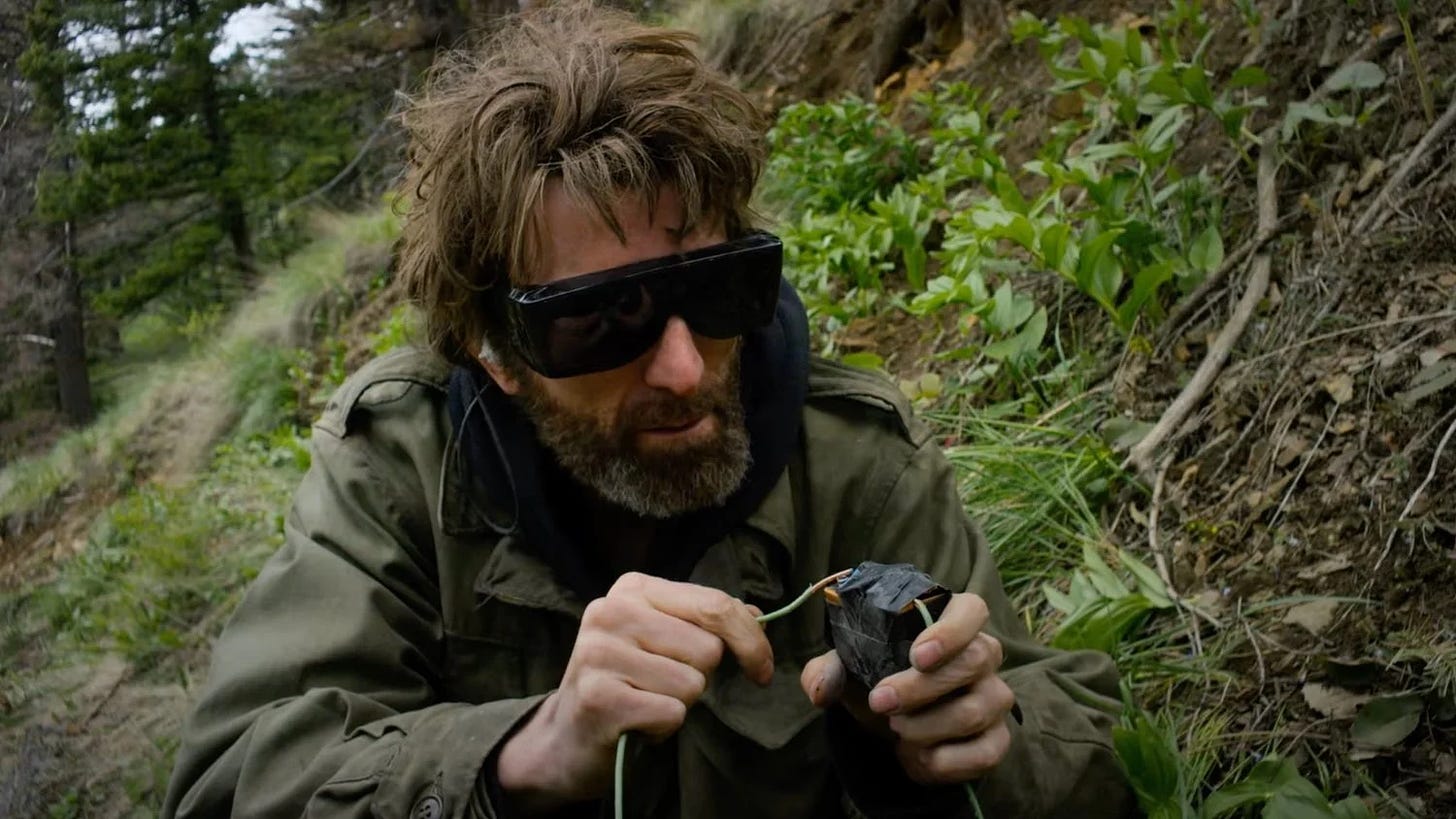
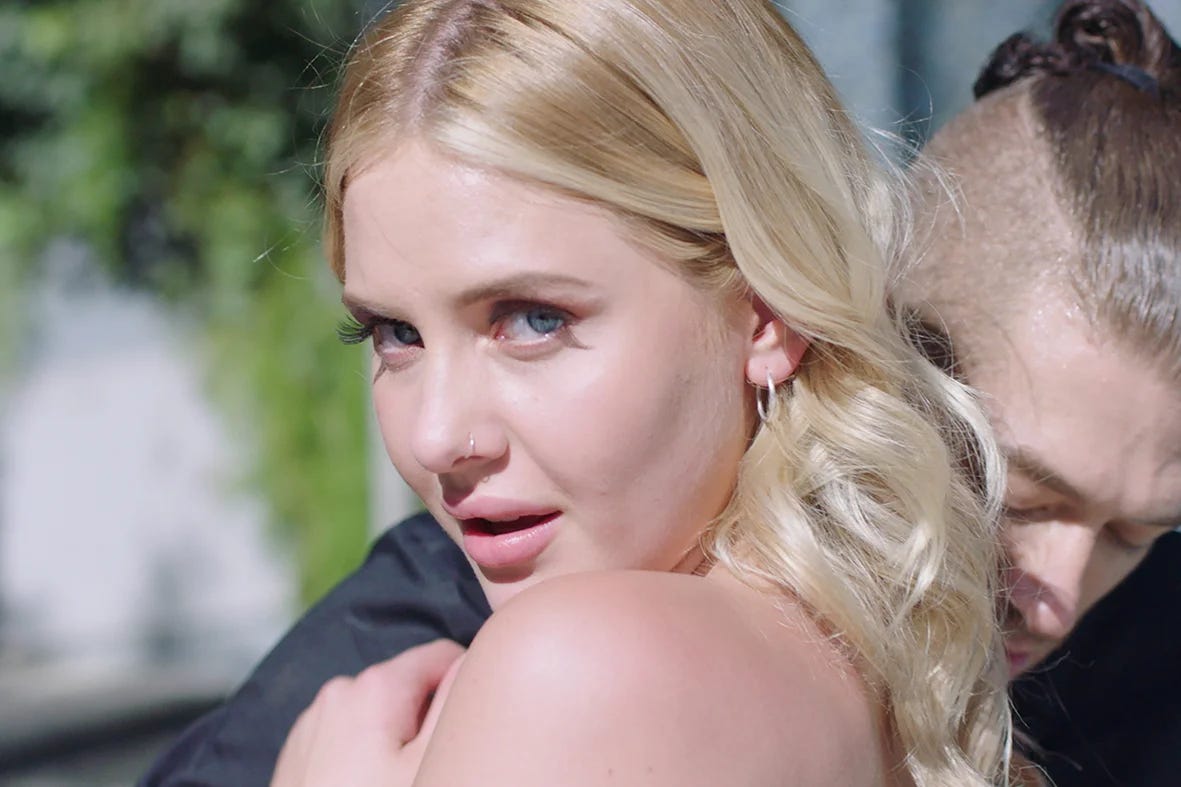

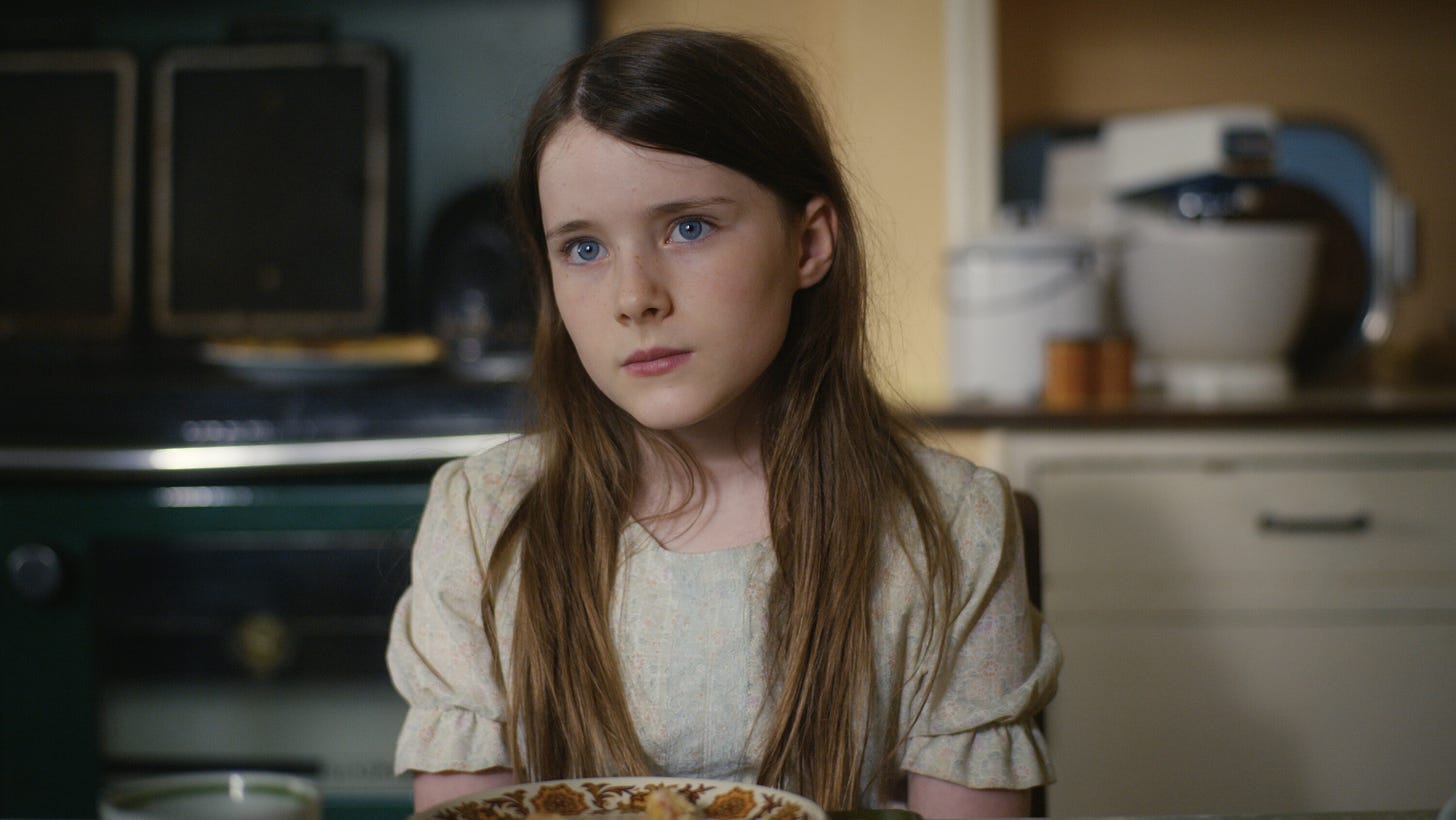
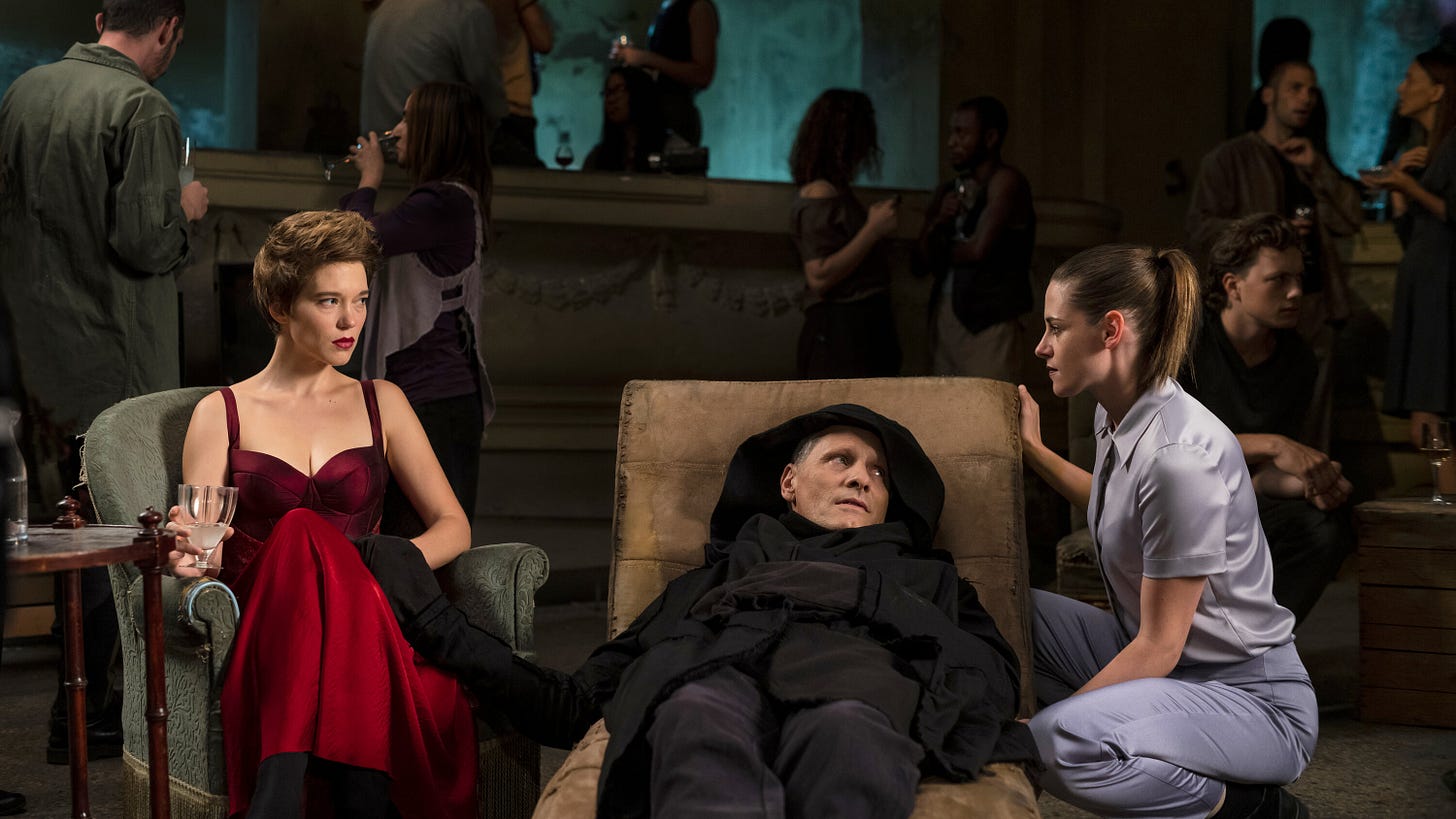



Great list, Scott. I still need to see Broker, however All the Beauty... was one of my faves of the year.
Of what I've seen from their 2022 slate:
1. Crimes of the Future - a brilliant, provocative, funny late-period work from a master
2. All the Beauty and the Bloodshed - devastating; breathes new life into a familiar doc form
3. The Quiet Girl - simple story told with grace, nuance, and verdant beauty
4. Fire of Love - someone on Lboxd succinctly dubbed it "The Life Volcanic," no notes!
5. Triangle of Sadness - shrugged at act one, laughed uproariously at two, admired three.
6. Moonage Daydream - enjoyed it as a theatrical experience, impressed by the editing and sound, but haven't thought much about it since.
7. Broker - not among my favorite Kore-eda pics; as you said, it's far too gentle for the material
8. Pleasure - agree with your gripe about it constructing a narrative and quasi-rivalry, but it would make a good pairing with Sean Baker's Starlet for a porn life double feature
9. Saint Omer - glad to see I'm not the only one who didn't take to this pic. well acted and compelling as courtroom testimony, but the dramatic stakes weren't there for me, particularly as they relate to the director surrogate
Kicking myself for overlooking Three Minutes: A Lengthening